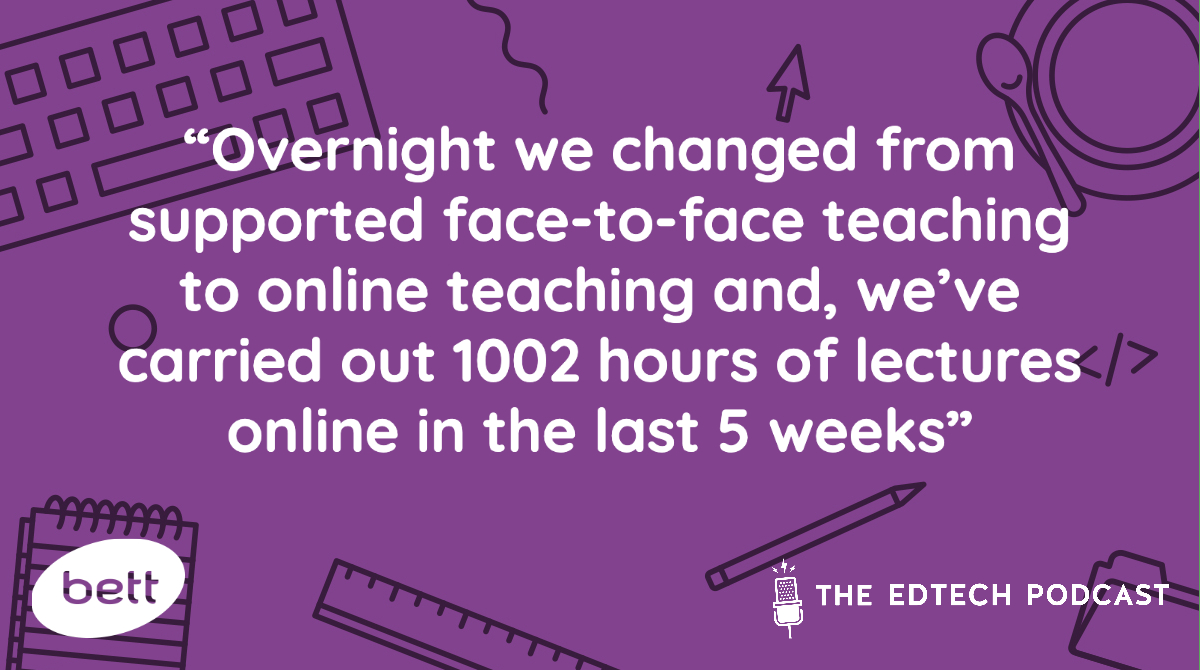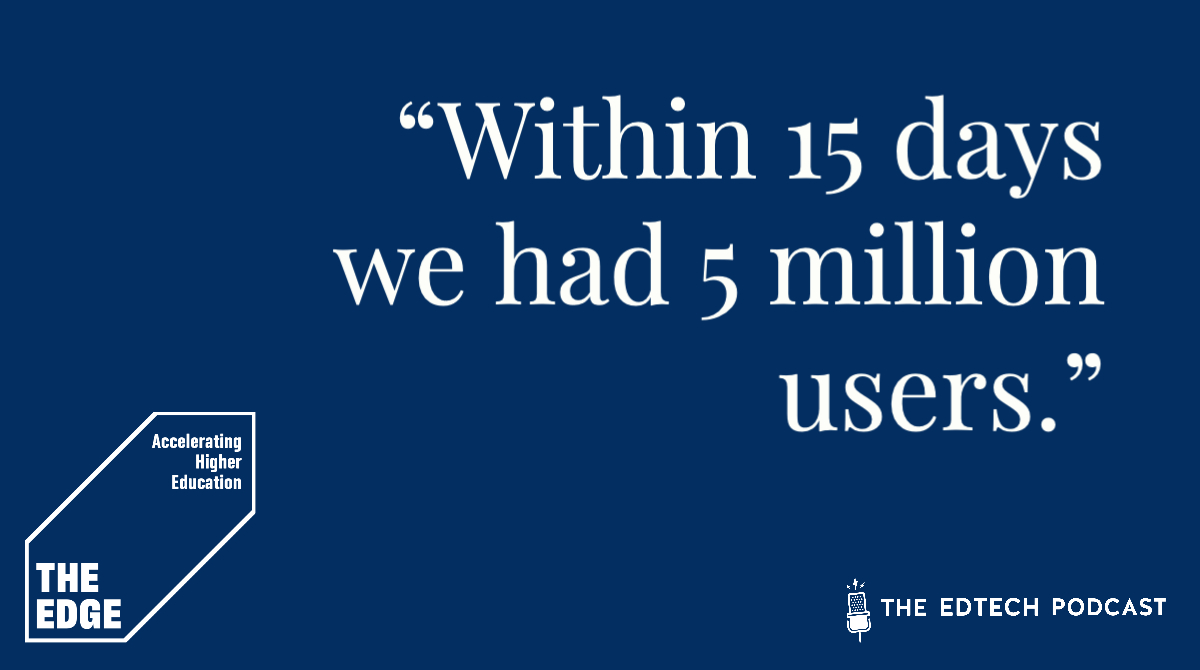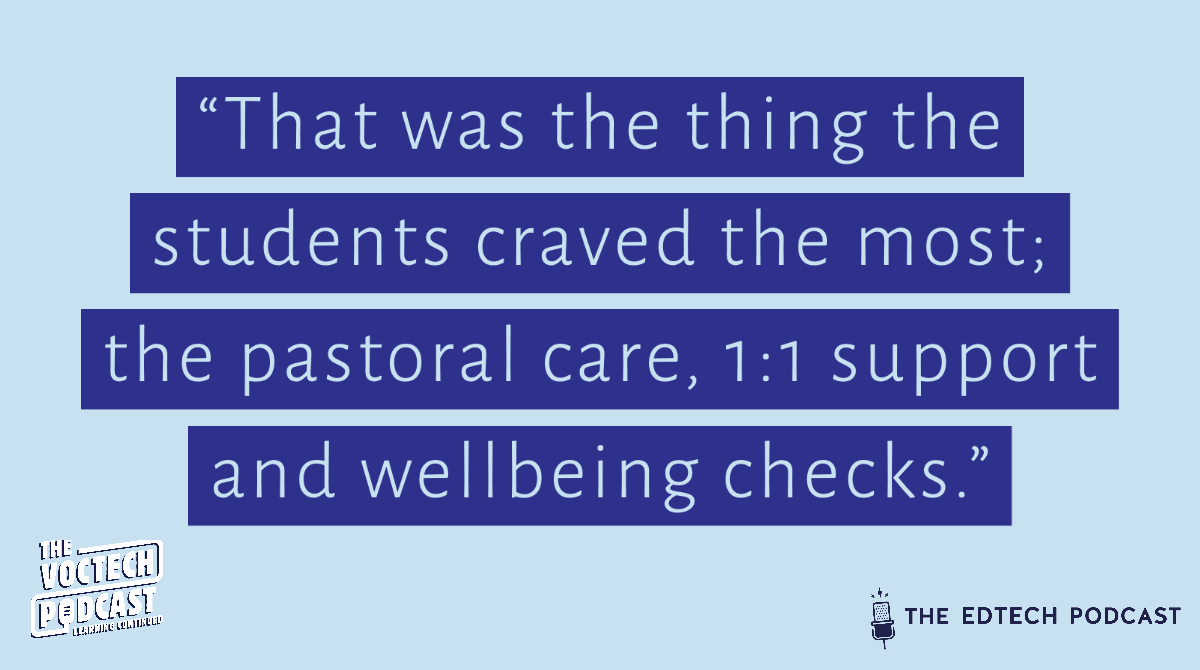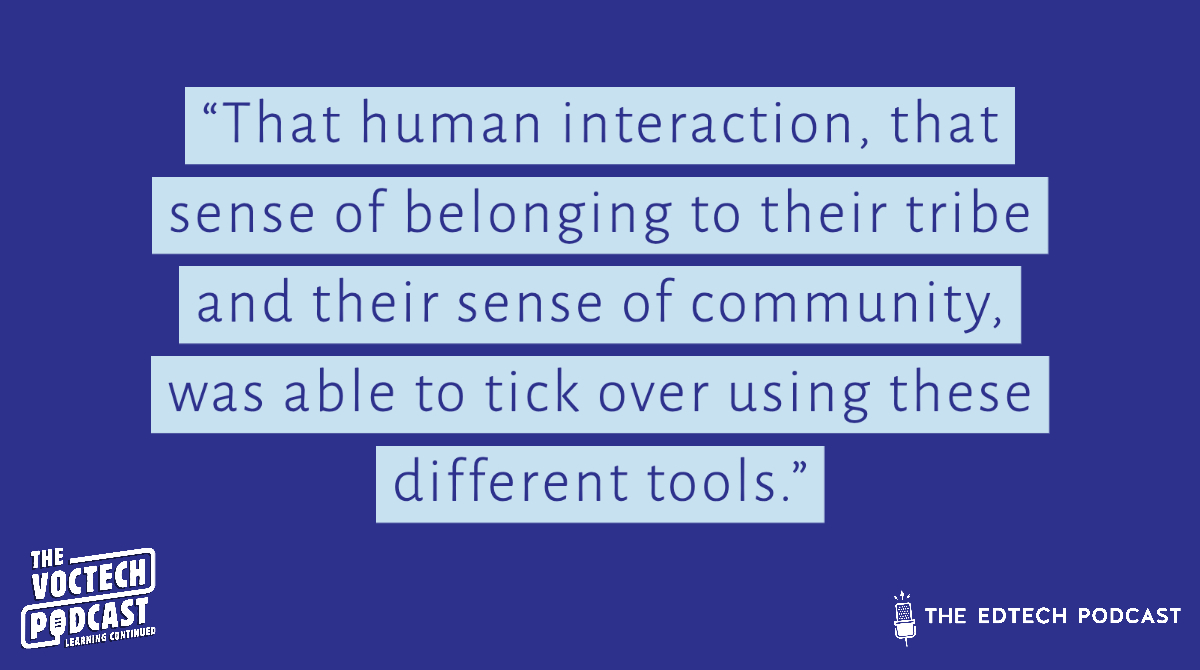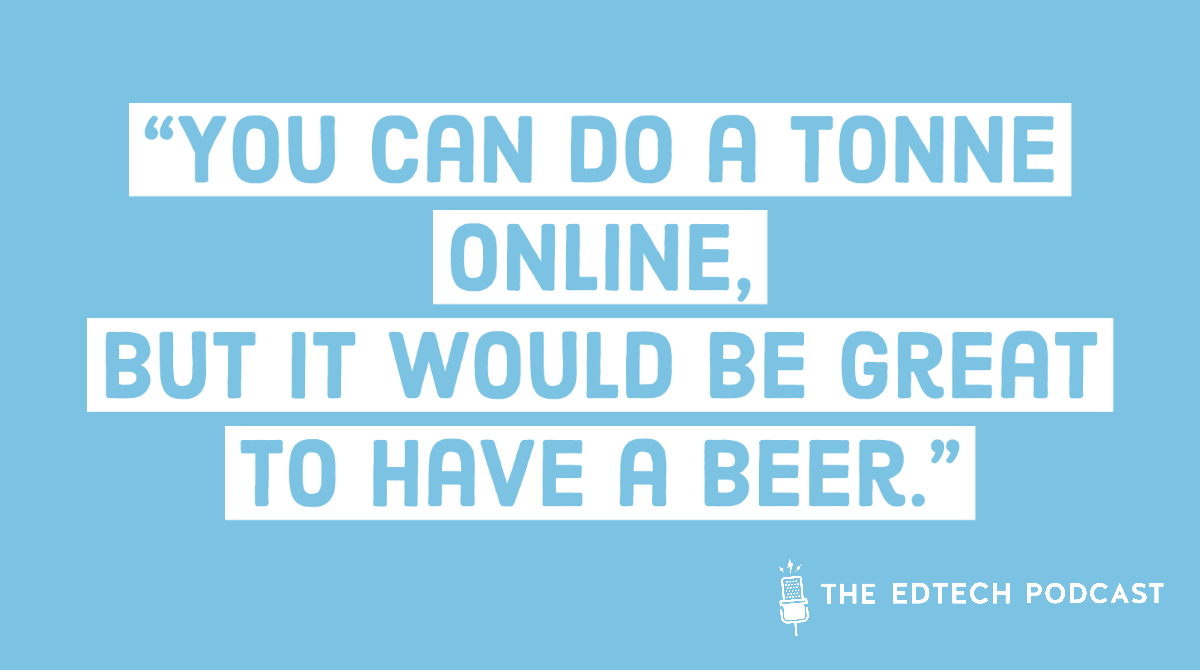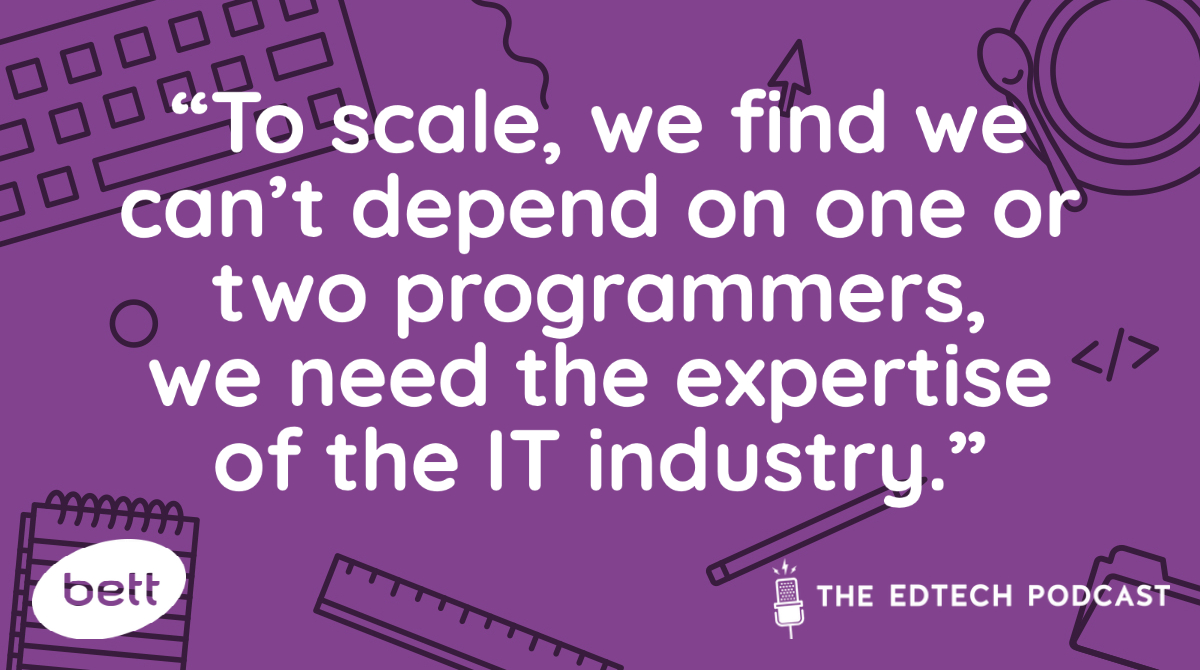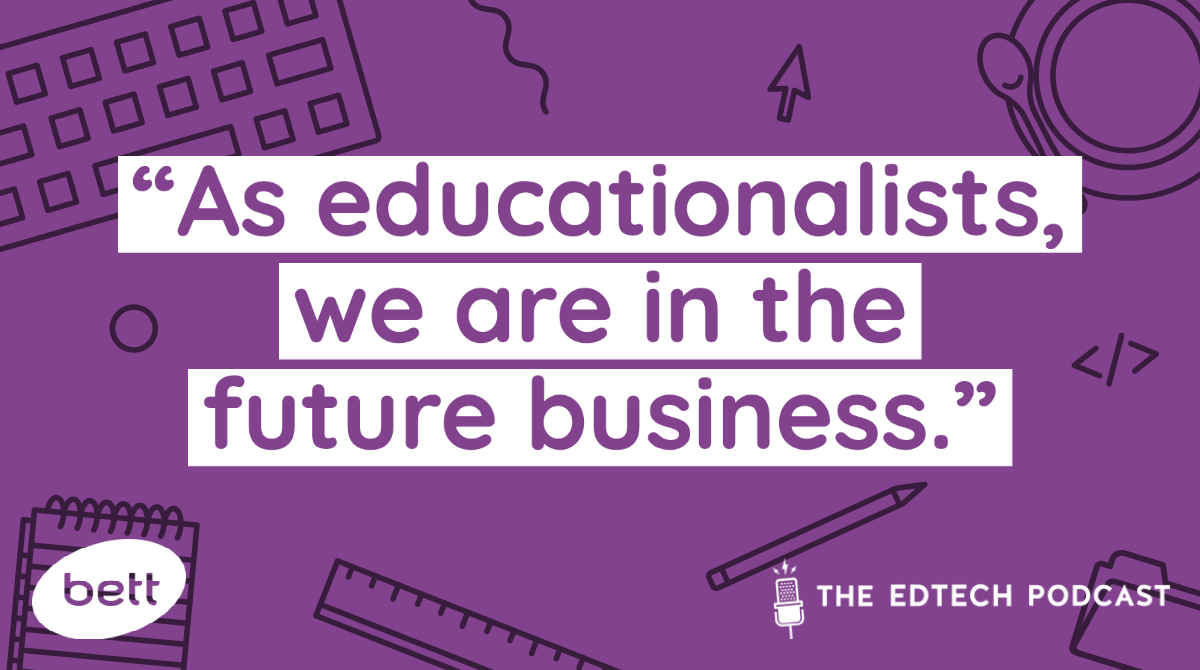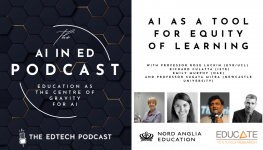The next evolution of edtech?
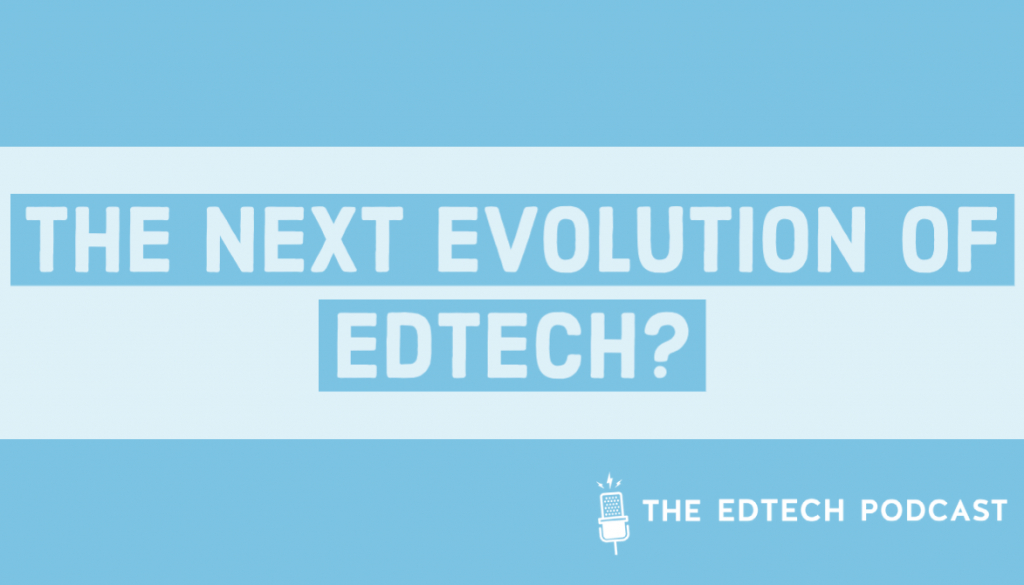
By Sophie Bailey, Founder and Host at The Edtech Podcast.
Background
Last month I was invited – by Advantage Austria – to present to education and edtech companies. With the podcast to run, a lockdown baby and now house renovations to contend with, I didn’t have oodles of time to refine a presentation, so I used the fifteen minutes to jot down my thoughts on what positives and challenges had come out of 2020 for edtech, and what that might mean for the next iteration of edtech as it supported the needs of learners. Obviously, all this comes with the huge caveat of depending on regional context etc. and whichever left-turn we may all make next. (Real-life isn’t broken into such easy delineations as good/bad. Plus – disclaimer – I’m not a “positive implication” vulture on what has been a defacto shit year.)
But, with that all said, here are my main musings which were jotted down and shared with our Austrian pals. (And, by the way, I hugely recommend checking out the work of Carmel Kent, the Head of Educational Data Science at Educate, and the other speaker at the Advantage Austria event, who soon publishes Educate’s collected data on educational outcomes and implications for edtech during COVID-19 times, so watch out for that). Ok….
POSITIVES
2020 has been bad. Very, very bad, but if we are to look at what the changes have meant in positive terms, we might start to think about…
- A clear use case for Edtech
- 2 years of digital transformation in 2 months
- Investment in edtech
- Continuity in teaching and learning
- Opportunity to be more creative around curriculum and delivery
CHALLENGES
2020 has also unveiled how edtech can be improved to be even farther reaching, so we might think more about;
- The digital divide and attainment gap
- Poor learning design
- Edtech = Big tech?
- Safeguarding
- Missed opportunities & systems paralysis
NEXT EVOLUTION OF EDTECH?
Given all that we have learnt this year, we might expect more of the following;
- Human-centred design
- Continuation of blended and hybrid
- Louder parent voice
- Assessment beyond exams
- Reskilling and vocational tech boost
- Tech to personalise and scale
POSITIVES
OK, let’s start with those positives. First up…
A clear use case for Edtech.
In March 2020, half of the world’s population were not attending school.
Although online learning had many gaps – see the same argument on “working from home” being unlikely for much of the world’s population – where it could be deployed it offered a real opportunity for both continued learning and approaching learning in a new way. As of late March 2020, as many as 1.37 billion students were studying and learning from home, according to UNESCO. Online learning is not fail-safe (see “challenges” below), but this is a remarkable achievement and it has changed how many education institutions view their sense of mission going forward. We should allow all this to sink in.
See this example by Dr. Ghazwa Alwani-Starr, Pro-Vice-Chancellor Strategy, Planning and Partnerships and Director of Property at University of London…
2 years of digital transformation in 2 months
Nearly everyone on the podcast this year has mentioned the pace at which they could get stuff done this year.
Indeed, Satya Nadella, CEO, Microsoft famously mentioned this year (not on The Edtech Podcast, I should hasten to add!)…
“We’ve seen two years’ worth of digital transformation in two months. In April, we saw more than 200 million Microsoft Teams meeting participants in a single day, generating more than 4.1 billion meeting minutes. Also, Teams now has more than 75 million daily active users.
For schools, colleges, universities and businesses, this sudden tooling-up has meant the radical upskilling of teachers, administrators, students and parents. It has meant crash courses in agility and communication, and onboarding of new skills, like using Zoom in Government (before rejecting it). Bureaucracy which was sacrosanct in places like the national health service or University procurement has been hit square on the nose by the art of the possible (backed by wodges of cash).
What this means for edtech is a more ready base for using digital tools and services, with the potential for quality active blended learning, though more and continual CPD and access is always needed.
Positives
2 years of digital transformation in 2 months
Some examples of this rapid transformation. This first quote above was from Chris Jeffery, Dean at the British University Vietnam, who had already gone in and out of two cycles of face-to-face and then remote teaching due to campus lockdown by the time I spoke to him. The second quote and user stat. is from Dhawal Shah, CEO, Class Central who experienced a boom in users searching for online courses once it became apparent that business as usual wasn’t going to happen this year.
Indeed, even with the podcast, we went from around 10,000 monthly downloads to over 30,000 and then over 40,000 across the Summer. I put this down to a technical malfunction initially as my baby-addled brain couldn’t believe that was possible. But, the podcast host provider Libsyn reports that, yes, it was true. In which case, I speak from experience, that the appetite for education and technology, and for online learning was now out there writ large with people searching resources to better understand this semi-standardised world.
Investment in Edtech
There’s no more obvious way of this interest being reflected than a 22% rise in VC investment in edtech companies in Q1 2020 as companies responded to customer immediate needs, and investors responded with greater confidence. Much of this uplift was driven by mega-rounds in Chinese Online learning companies. According to New Metaari Market Research, Over $11.6 Billion was Invested to 516 Edtech Companies Across the Globe in the First Half of 2020. $1 billion went to China’s Yuanfudao in March 2020. In June 2020, $750 million went to China’s Zuoyebang, who boast 800 million users and 50 million daily active users. Edtech was featured in this broad FT focus piece.
There has also been greater emphasis on state investment in edtech. For example, The Department for Education (re)committed(?) over £100 million to provide devices and access to the internet for vulnerable and disadvantaged children and to ensure that every school that needs it has access to free, expert technical support to get set up on Google for Education or Microsoft’s Office 365 Education. (Laptop allocations have since been cut, but the pandemic put the discussion about devices, data connectivity and learning environment front and centre, for example, with calls for devices in all secondary schools proposed in the first All Party Parliamentary Group on Edtech). With attainment gaps becoming ever more apparent due to the uneven nature of educational provision in 2020, a subsequent £1 billion Covid catch-up package has been put forward to directly tackle the impact of lost teaching time as a result of the pandemic, and no doubt this will further stimulate growth in online tutoring services and edtech which focuses on functional skills.
Continuity in teaching and learning
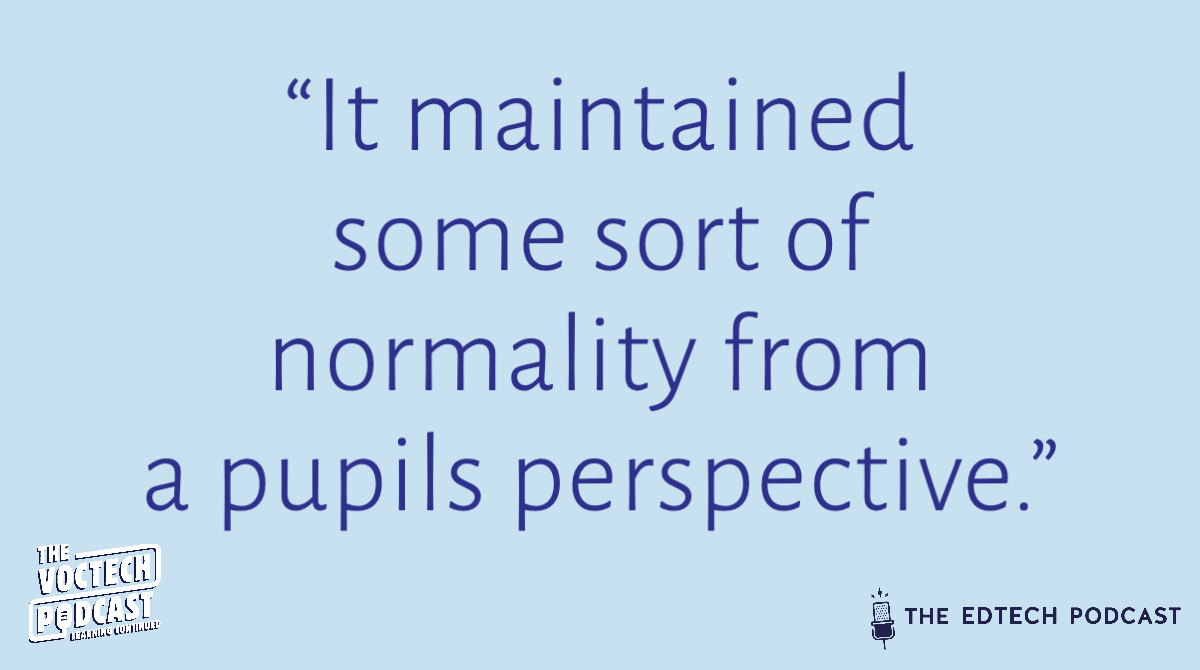
The self-organising nature of “ed” and “tech’ to support learners during 2020 was heartening to see.
This quote is from Paul Edge, Deputy Head Teacher, Ribblesdale High School, also one of the featured schools from the Edtech Demonstrator Programme. I liked Paul’s reminder to stop and take stock of what an effort had been achieved under extraordinary circumstances. You can listen to him really get into this theme here…
With access to face-to-face teaching hugely uneven due to local lockdowns, or isolating or shielding students or staff, edtech (and human ingenuity!) has continued to allow access to teaching and learning in schools, colleges, workplaces, Universities. The DFE have now formalised pupils’ rights to remote learning, and Universities will move teaching online from 3 December in Wales and 9 December in England, to allow for student movement in the run-up to Christmas.
Opportunity to be more creative around curriculum and delivery
Much of this year’s collective and individual experience has allowed us to question what is really important. This quote from Aastha Das, a 17-year-old entrepreneurial-minded student from Dubai shares how personal lockdown experiences have spilt over into new expectations around learning…
This year, a broader set of gatekeepers were invited in to the discussion on learning, on homeschooling, on wellbeing and outdoors education and a whole range of tools and solutions. It was exhausting, but we learnt a great deal and we almost certainly learnt that online isn’t heavy lifting real-life and plonking it onto a screen. See…
CHALLENGES
Digital Divide and Attainment Gap
Ofsted’s impact of COVID-19 reports have now concluded that attainment gaps and social skill losses were some of the outcomes of the pandemic on young peoples learning. A report for the National Foundation for Educational Research (NFER) also found that a third of pupils were not engaged with their lessons, fewer than half (42%) had bothered to return their work, and pupils in the most disadvantaged schools were the least likely to be engaged with remote learning. More broadly, one-third of the world’s children were unable to access remote learning when schools closed during the lockdown. Even where remote learning was high-quality; the heady mix of devices, connectivity, digital literacy and learning environment affected learning outcomes. Though students eligible for the pupil premium faced the steepest attainment drop, the digital divide was not only the reserve of poorer households. (Quote below from Eric C Abrams, Chief Inclusion Officer, Stanford University Graduate School of Education).
There are increasing calls for the 1.3 million children eligible for free school meals to be equipped with a broadband connection and devices, to help to reduce the digital divide.
Poor learning design
My favourite demonstration of everything we should learn from this year is contained within this video; the simple message is you can’t take the offline world and plonk it online and expect all to go swimmingly. (This is why we have instructional designers and other experts.)
For edtech, there were too many stories of inhumane online practices: lecturers demanding cameras on when a student is within their own bedroom, exam candidates being sick in the bin so that they weren’t penalised in their assessments for losing eye contact via tracking technology, the discombobulating sense of self after 8 hours of Zoom meetings without the usual mind-wanderings of a physical environment. Not to mention THAT incident on Zoom. You know the one I mean. We also need to move beyond content deployment and think about more sophisticated forms of cross-pollination.
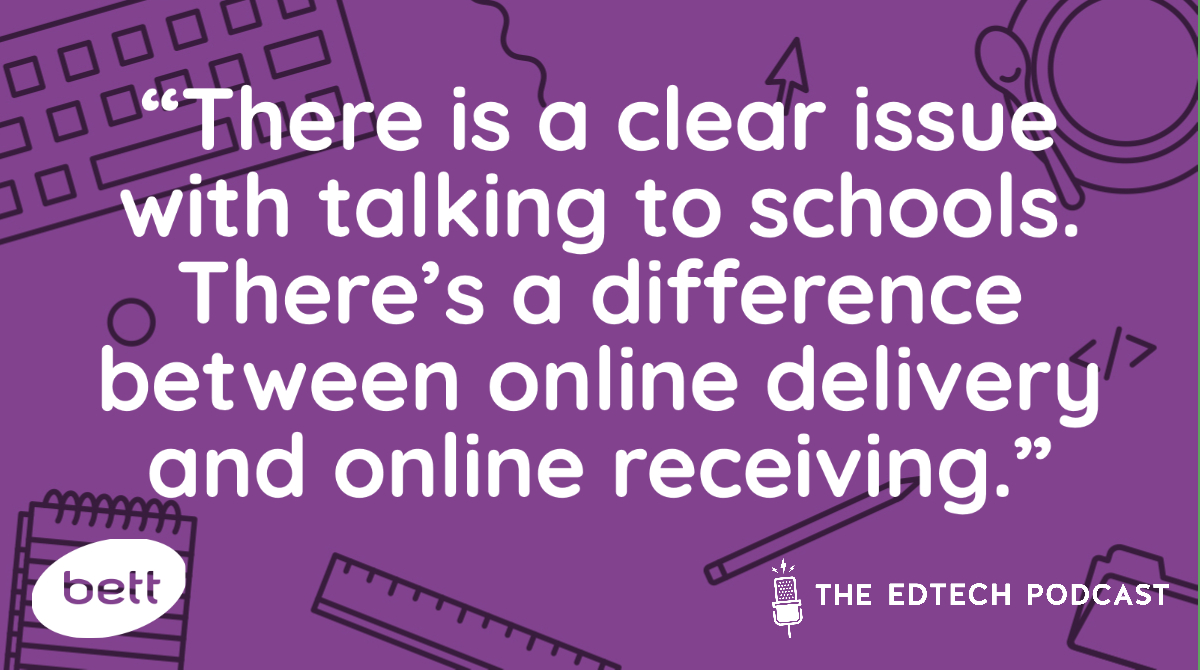
This quote from Dr Ger Graus, Global Director of Education, KidZania. Below, investor Allison Baum riffs on the need to reinvent not replicate on The Voctech Podcast (our series on adult education and tech).
Edtech as big tech
One of the big questions for ‘edtech’ is why big tech dominated this moment. Government funding to help schools provide remote learning was for the Microsofts and the Googles. Mainstream players like ZOOM pivoted into education, becoming a default option. What does this mean for the breadth of educational technology providers out there and can they be sustained off of these ecosystems and beyond a largely freemium play? In the end, cost wasn’t the determining factor; schools wanted laser focus on subject-specific tools which did one thing well. This quote from David Maguire, Head, Coupals Primary Academy…
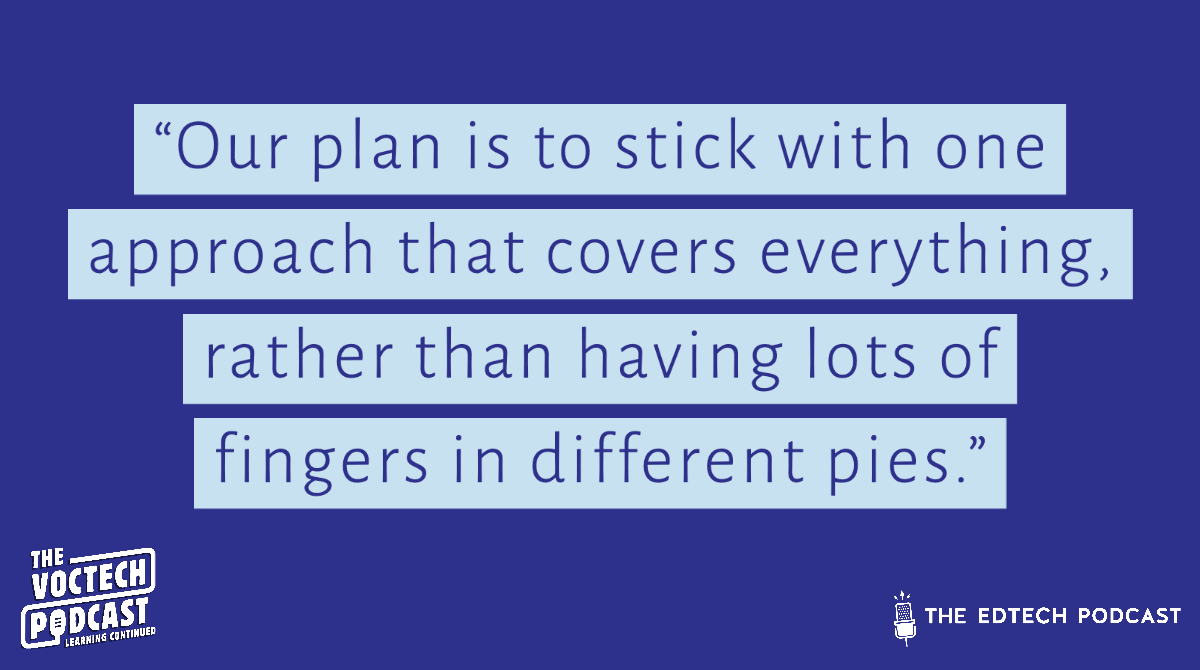
Safeguarding Online
The Chief Inspector of Education and Children’s Social Care has warned that the invisibility of vulnerable children as a result of the COVID-19 pandemic should be a matter of national concern. Safeguarding was one of the “blind spots” of the response in general.
Challenges
-
Safeguarding online
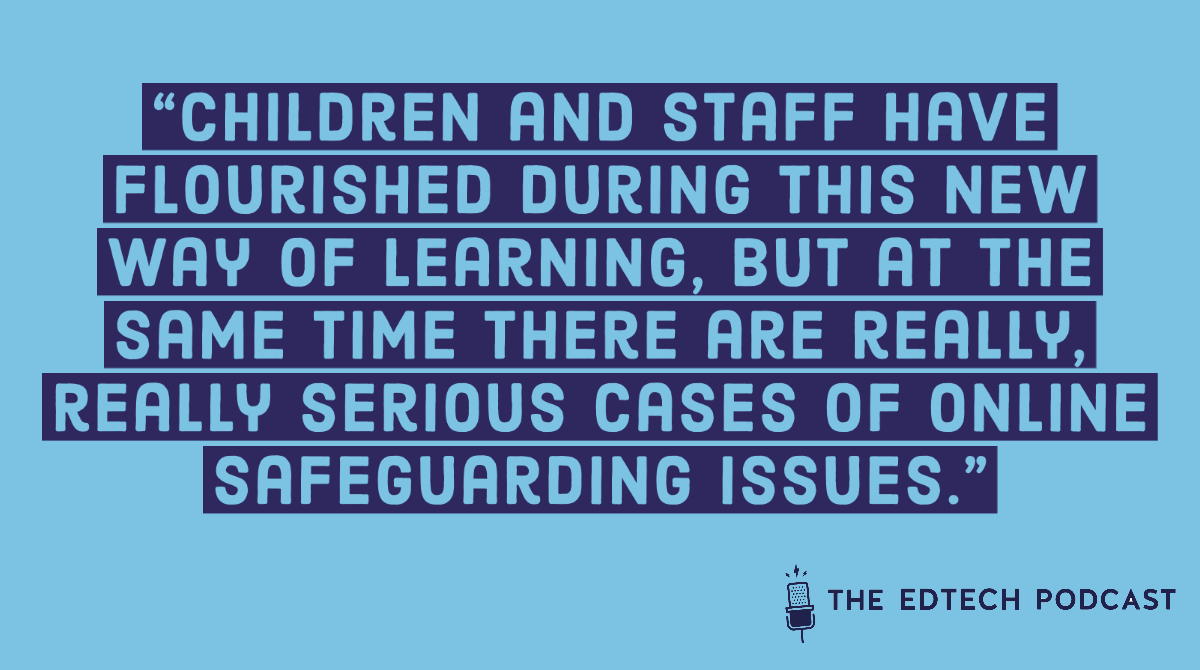
This audio clip from Katy Potts, Primary ICT and Computing Service to schools in Islington LA on the issue.
Missed opportunities and system paralysis
One of the pause moments for edtech this year, is where the technology was available but wasn’t used. For example, scientists from the government’s Scientific Advisory Group for Emergencies (Sage) advised that teaching at all colleges and universities should be online unless “face-to-face teaching [was] absolutely essential”. Yet, Universities opened their campuses, and f2f offers and we saw the unique student experience of Manchester University (with fences put up around student accommodation), and other Universities with spikes in COVID transmission and quarantining students. Similarly, with the exam fiasco, online assessment sat on the shelf, whilst poorly-designed algorithms to designate grades robbed students of their chance to prove themselves and tainted the public perception of technology perse.
Partly, these missed opportunities are the last gasp of traditional business models in self-preservation mode. Partly, they are due to dithering and postulating.
This quote from Farshida Zafar, Director, Erasmus X:
NEXT EVOLUTION OF EDTECH
2020 has been a seminal year for edtech: through educational technology millions of learners have been able to continue their studies, socialise and remain curious. And educational technology companies and educational institutions have been able to learn the rapid induction so as to refine their teaching and learning or administrative offer. How might this inform the next iteration of edtech?
Human-centred design
As well as amazing connectivity and opportunity, there have been many horror stories to come out of this year: journalists caught “off guard”, learners being sick into bins so as not to scupper their online exams, student protecting their privacy and homelife online, and workplaces shifting to online only to replicate hours long meetings with the knock-on impact to wellbeing. The next version of edtech will take all of these learnings and humanise the experience; it will be less about optimising relentlessly, and more about mindfully bringing people together to learn.
For example, in one episode we had a University student in France who were operating a one week on-campus, one week off-campus policy to mitigate the spread of infection. This was split by student surname, but rightly she was asking, ‘couldn’t this have been done in a more meaningful way?’ AI technology could have a place here curating groups by career-interest, for example, rather than arbitrary A-Z.
Also, student? Rather than being penned in by fences and forced to study in a tiny isolated room, why not make the most of U Experience, a university-course cohort enjoying learning in Hawaii next to the beach whilst everything is online? (We had Selina talking about this idea on the podcast last April).
Next evolution of edtech…
-
Human-centred design
(Beer quote above from the CEO of 2U, Chip Paucek.)
Continuation of blended and hybrid
Next evolution of edtech…
-
Continuation of blended and hybrid

Not that you ever need any excuse to have Dolly Parton in a presentation, especially because of her boundless work within education, but this particular reference is via Allison Baum, General Partner, SemperVirens who quoted Dolly in regards to the famous song 9 to 5 now needing a re-write, to reflect our new flexible working and learning modalities!
Although I expect a resurgence of face to face activity as soon as it is possible, hybrid and blended will be here to stay.
Parents
Although “homeschooling has been hell” as many headlines screamed, the experience has exposed many of us to what tools and services are available and made us more active participants in our children’s learning. Clearly, this is completely variable on circumstance, but I expect to see more private online tutoring services growth as some parents negotiate – on behalf of their child- the competitive post-16 landscape, and changeable assessment scenarios. Also, more digital portfolio offers, and credentialling to signal values-based learning, and a way to showcase assessment beyond exams.
Parents have also been spending money on their children’s learning since the lockdown. The Sutton Trust reports that while most had spent less than £50, 14% had spent more than £100 in the first week of the school shutdown. 19% of children from middle-class homes had £100 or more spent on them, compared to 8% in working-class homes. For households earning over £100,000 per year, a third of children had more than £100 spent on their learning. Many edtech companies are now focused on their parental offer – see emphasis by Frog and Firefly Learning on their parent portals -as just two examples.
Reskilling
Vocational technology is coming of age, as huge disruption to employment, retention and recruitment, sharpens minds on reskilling nations out of the pandemic. For example, TIME magazine’s best inventions of 2020, is a “virtual patient” using AI technology which can role-play life-like scenarios and be accessed via a VR headset, PC or tablet so trainee medics can safely learn their skills remotely during the pandemic. (The founder is on the podcast in January 2021). Many organisations have had a rapid induction into digital skills development in 2020 and will continue to build off of this skill set in 2021, but various market funding mechanisms will also be focused on reskilling the newly and long-term unemployed. This quote from Gordon Bateman, CEO, CRSI…
Tech to personalise & scale
For this next iteration of edtech to be possible, technology will be needed to truly personalised and scale (along with that human-centred design mentioned earlier!).
Next evolution of edtech…
- Tech to personalise & scale
We can see how rapidly technology is changing our ability to learn and apply knowledge within our industry. Look at Deep Mind’s announcement just recently on the use of AI to predict protein development and implications for the medical sector. The same will apply in education. I especially like these two quotes. The first from Samson Tan (Dr), Singapore Head, Centre for Innovation in Learning, National Institute of Education and the second from Mark Steed, CEO at Kellett School, The British International School in Hong Kong.
Let’s not forget we are in the future business. We’re looking forward to 2021!
Thank you ALL for your amazing hard work and dedication this year.
Best wishes to you all, and if you want to listen in to the podcast, details below.
How to listen to The Edtech Podcast:

Have a wonderful break!

